
The library in the penal colony: Chekhov’s unsung gift to Sakhalin
Chekhov’s contribution to the cultural landscape of the Sakhalin penal colony (1868-1905), the establishment of several school libraries containing more than 2,200 volumes for the island’s children and their convict parents, has received little attention compared with the acclaim accorded his prodigious 1890 demographic census of prisoners. “I visited every settlement and went into every hut,” he wrote.”I don’t […]
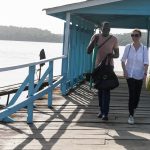
Upriver to Mazaruni Prison (Guyana)
One of the wonderful things about ‘blue skies’ research is the element of surprise that it can throw up. When I began work on ‘The Carceral Archipelago’ project, I had not planned to work on the British Caribbean. I had long been aware of early-modern British and Irish convict flows to islands like Barbados, […]

The “Pains of Imprisonment”: an historical sociology of penal transportation?
A few years ago, the eminent scholar of the Russian Gulag, Professor Judith Pallot, challenged me to consider the relevance of the sociology of incarceration as a means of understanding convict experiences in penal colonies. She advised me to think in particular about Gresham M. Sykes’ classic 1958 text, The Society of Captives: A […]
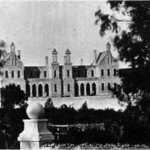
Unwell or Unwanted? The Mental Health of Western Australia’s Convict Population
By Kellie Moss Western Australia welcomed the transportation of convicts in 1850 as a solution to the economic problems which had affected the colony since its foundation as a free settlement in 1829. However, the 1857 Penal Servitude Act significantly altered the kinds of convicts being sent as deportation was discontinued for sentences shorter than […]
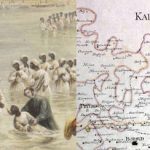
A Snapshot of Collaborative Work in History
During my PhD study and for the first ten years of my academic career, I researched alone. I went to the archives, I discussed and presented my work to academic audiences, and I published books and academic papers. Though like many others, I felt myself to be engaged in a larger intellectual project (subaltern studies, […]
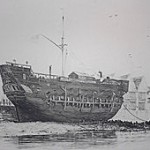
Conceptualising Islands in History: Considering Bermuda and Gibraltar’s Prison Hulks
By Anna McKay, AHRC Collaborative Doctoral Partnership Student, National Maritime Museum & University of Leicester. As a relatively new addition to the University of Leicester’s School of History and the Carceral Archipelago project, over the last few months I feel as if I’ve undergone a thorough “academic baptism”. Since beginning my PhD studies in […]
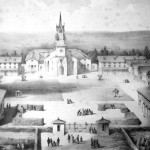
Thinking sociologically about the history of convicts and penal colonies
In the early 1990s I had the privilege of studying with David Garland, then teaching and researching in Edinburgh University’s Law School. He had recently published a wonderful book – Punishment and Modern Society: a study in social theory – which remains as relevant and important today as it was then. Week by week, Professor […]
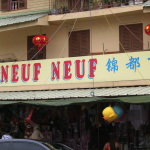
Empire’s Exile: The Story of Lý Liễu
by Lorraine M. Paterson In 1923 in the British colony of Trinidad, a young English woman returned from visiting her family in a suburb of the capital, Port of Spain, to find that her Chinese husband of six years, Lý Liễu, had packed up his possessions and left her and their two small children. […]

Thinking About Convict Objects, in French Guiana
In the Musée Départemental Alexandre Franconie in Cayenne there is a room dedicated to the history of the French colonial bagne (prison). Among the displays of artwork copied from the paintings of the well-known convict artist Francis Lagrange are a handful of objects made by convict craftsmen. One is by Lagrange himself, a small and […]
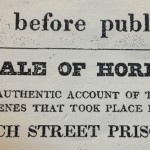
Arch Street Prison: A Prison without Convicts
By Kristin O’Brassill-Kulfan. Over the past two years, I’ve been welcomed as an affiliated researcher by the CArchipelago team with the tangible benefit of having learned more about both convict history and global history in this brief span of time than in a lifetime previous. My own work is less internationally defined than the avenues the […]

Recent Comments